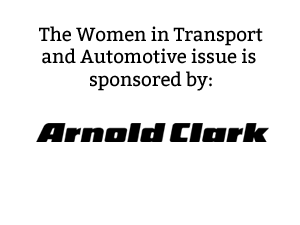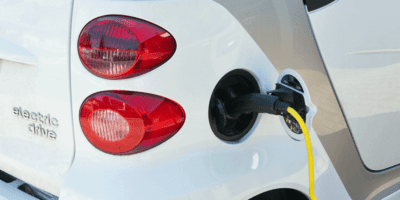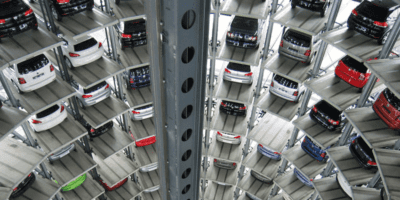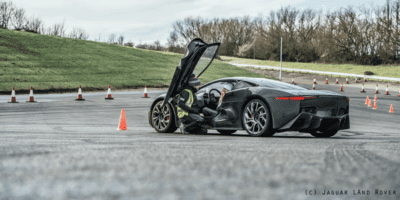Sharon Kindleysides is managing director of Kapsch TrafficCom, a global provider of intelligent transportation systems (ITS), headquartered in Vienna, Austria. She is an active champion of women, having founded the Women in ITS Special Interest Group. Sharon also sits on the Institution of Engineering and Technology (IET) Transport Policy Panel, providing expert guidance both internally and externally.
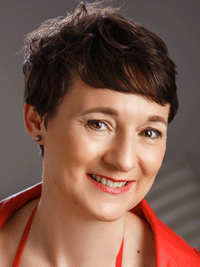
“…It is sadly true that women are often not seen to be suitable for leadership roles within the engineering industry and this is often perceived not as a direct bias but more “well, they wouldn’t want the job anyway”…”
Sharon, please can you tell us about your career to date and what made you want to get into intelligent transport systems (ITS)?
My degree is in manufacturing systems engineering, which had a very broad based curriculum covering mechanical, electrical and software engineering along with general topics including management and marketing. I always saw it as the perfect degree for learning how to run an industrial business.
I have always been interested and involved in engineering projects with a wider impact and this had led me through ship building and ship repair, via maintenance services and Lotus Cars to arrive at ITS around 13 years ago. At that stage ITS was new and unexplored and over the last years its continuing development and expansion into new areas has ensured it is not a boring industry to work in.
What does your role at involve on a day to day basis?
Every day is different in my role as managing director of Kapsch TrafficCom Ltd and it keeps me on my toes! We have recently moved through the ‘go-live’ phase of a software project; prior to that, there was a considerable amount of project management, peace-keeping and customer liaison to ensure that the transition into operations was as smooth as possible. In addition there are always bids or project change work to keep the money coming through the door.

I am very keen on promoting diversity and inclusion in the ITS industry and STEM world more generally. I am involved in number of working groups looking to tackle this subject and I am often invited to speak and present on the subject.
Please can you explain a bit more about ITS and its significance moving forward?
Intelligent Transportation Systems (ITS) are broadly systems which use technology in order to improve transportation systems. As transport networks become more integrated both with each other and the wider environment there will be an increasing reliance on data to ensure travellers can make the best choices from the options available to them and that local and national transport bodies can plan the provision of their services in a sustainable and cost effective way.
The future development of cities and urban areas relies on this integration, which will involve elements such as roadside infrastructure, public transport data and weather data, along with sensors for traffic levels, pollution, pedestrian footfalls and so on. It will use this information to get the best out of limited resources to keep the cities and their population mobile.
How did your appointment to the IET Transport Policy Panel come about and what does it involve?

The work with the panel is varied and interesting, involving a mix of proposing strategy and policy ideas for the IET, as well as carrying out specific pieces of work to investigate individual topics in more detail. We are currently producing a guide aimed at local authorities to give them an overview of emerging technologies and their applications. Reading the case studies we have received has been really interesting, seeing how existing technologies have been applied in a different way to bring safety or traffic flow improvements.
In June General Motors became the first major industrial company to achieve gender parity on its board of directors when shareholders elected Jane Mendillo, splitting its 12-member board evenly between men and women. What is the significance of this milestone?
Whilst it is great news that GM has achieved gender parity on its board, it is really sad that it has taken us until 2016 to achieve this milestone. I hope that this will give the signal to other boards, including those in smaller companies that it is perfectly acceptable to offer women a place in the boardroom and not to something to fear.
I frequently encounter discrimination as I seek to progress my career and have within the recent past been turned down for a leadership role; because I’m a woman I was not considered to be strong enough to manage the men who would work for me. So I fear that while that mind set still exists and is seen as acceptable, it is hard to see how equality in the boardroom will be achieved.
What are the challenges of female leadership and how can organisations like the IET help women navigate these?
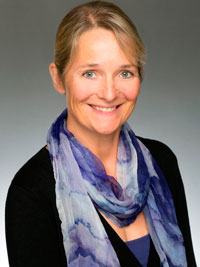
It is sadly true that women are often not seen to be suitable for leadership roles within the engineering industry and this is often perceived not as a direct bias but more “well, they wouldn’t want the job anyway”. There are of course exceptions to this; the immediate past President of the IET, Naomi Climer, is a woman.
Many professional institutes are still perceived very much as a reserve of gentlemen, so there’s always more than can be done to support female members. This is by doing things like promoting an understanding of this unconscious gender bias on a wider scale so that members can be better aware of what they can do to encourage women in their organisations and not behave in an “accidentally” sexist way. This might involve giving more thought to the practicalities faced by working parents (often mothers), so arranging meetings outside times that clash with the school run for example.
What are the opportunities for women in ITS?
ITS is a fabulously exciting industry for anyone who is interested in how transport affects our daily lives. It is possible to enter at all levels from apprentices and graduates to later in life; pure ITS qualifications are rare so an inquisitive outlook on life is a much more useful qualification that enables people to move into ITS from other industries. In particular for women, many ITS companies are very supportive and open to flexible and innovative working approaches.
As the ITS industry spreads across more areas, further opportunities will arise in sectors that may not traditionally be associated with transportation, so for example approaches to monitoring and changing driver behaviour, app creation and data mining, and these may be more appealing to new entrants to the industry.
What is coming up next for you, Kapsch TrafficCom and the IET?
I have just attended an interesting workshop arranged by the Future Cities Catapult and the Prosperity Fund to look at a blueprint for the application of ITS in delivering sustainable transport solutions for Iskander in Malaysia. I’m looking forward to the follow up meeting where a Malaysian delegation will visit the UK to see examples of ITS systems in operation and meet UK based SMEs who can help them with their projects.

At Kapsch we are about a third of the way through the delivery of the CHARM project with Highways England – an exciting project for us. We are also delighted to have recently been awarded a place on the second Traffic Management Technology Framework. I also just heard this morning that one of our partners is through to the next stage of a really exciting project (which I can’t share details of yet) but it is in an area that is new for me and I’m looking forward to being involved.
Last, but certainly by no means least, the joint IET / ITS UK Emerging Technologies Guide for Local Authorities is coming together nicely – we are looking forward to launching the guide soon and getting the word out about what innovations are coming our way.
http://www.theiet.org/policy/panels/transport/


